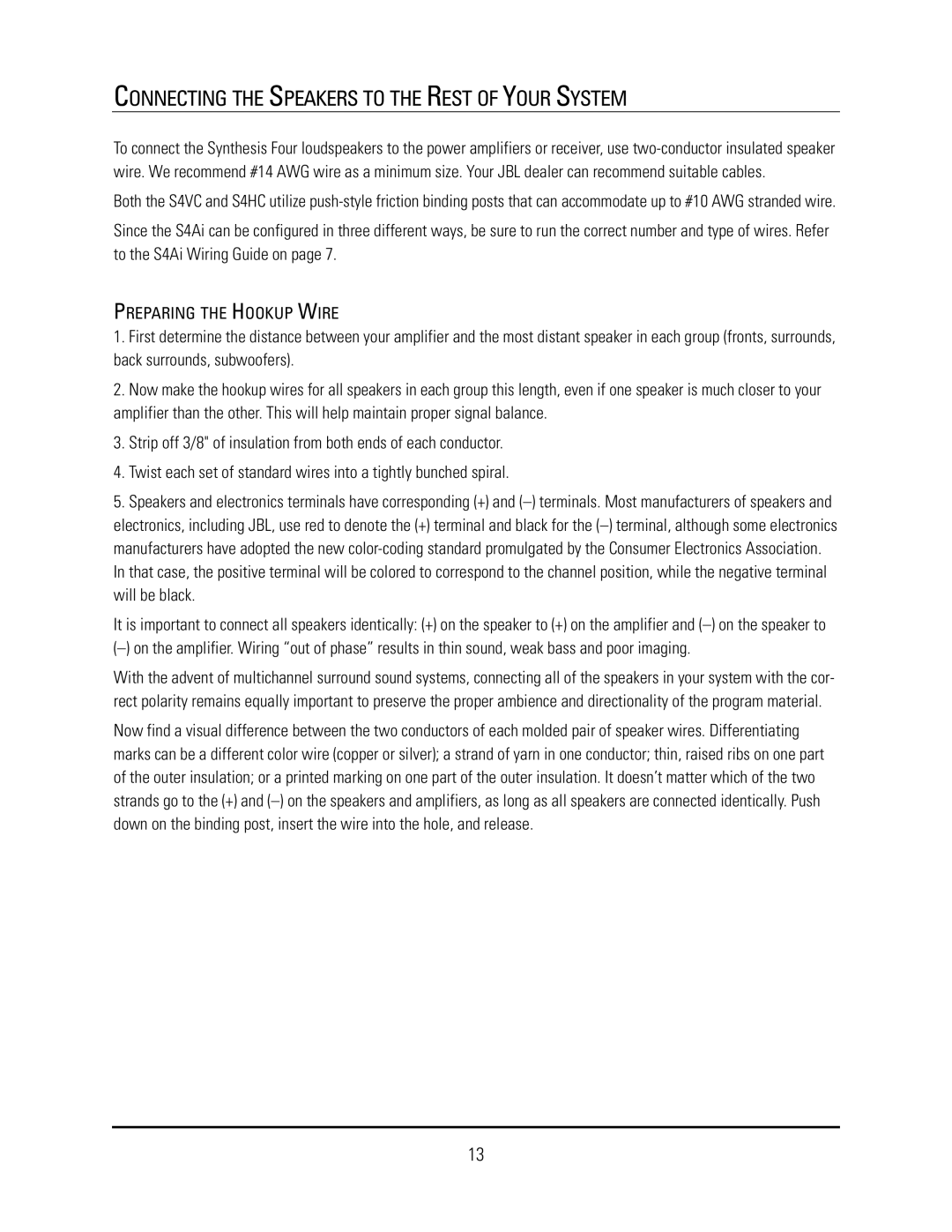
CONNECTING THE SPEAKERS TO THE REST OF YOUR SYSTEM
To connect the Synthesis Four loudspeakers to the power amplifiers or receiver, use
Both the S4VC and S4HC utilize
Since the S4Ai can be configured in three different ways, be sure to run the correct number and type of wires. Refer to the S4Ai Wiring Guide on page 7.
PREPARING THE HOOKUP WIRE
1.First determine the distance between your amplifier and the most distant speaker in each group (fronts, surrounds, back surrounds, subwoofers).
2.Now make the hookup wires for all speakers in each group this length, even if one speaker is much closer to your amplifier than the other. This will help maintain proper signal balance.
3.Strip off 3/8" of insulation from both ends of each conductor.
4.Twist each set of standard wires into a tightly bunched spiral.
5.Speakers and electronics terminals have corresponding (+) and
In that case, the positive terminal will be colored to correspond to the channel position, while the negative terminal will be black.
It is important to connect all speakers identically: (+) on the speaker to (+) on the amplifier and
With the advent of multichannel surround sound systems, connecting all of the speakers in your system with the cor- rect polarity remains equally important to preserve the proper ambience and directionality of the program material.
Now find a visual difference between the two conductors of each molded pair of speaker wires. Differentiating marks can be a different color wire (copper or silver); a strand of yarn in one conductor; thin, raised ribs on one part of the outer insulation; or a printed marking on one part of the outer insulation. It doesn’t matter which of the two strands go to the (+) and
13
